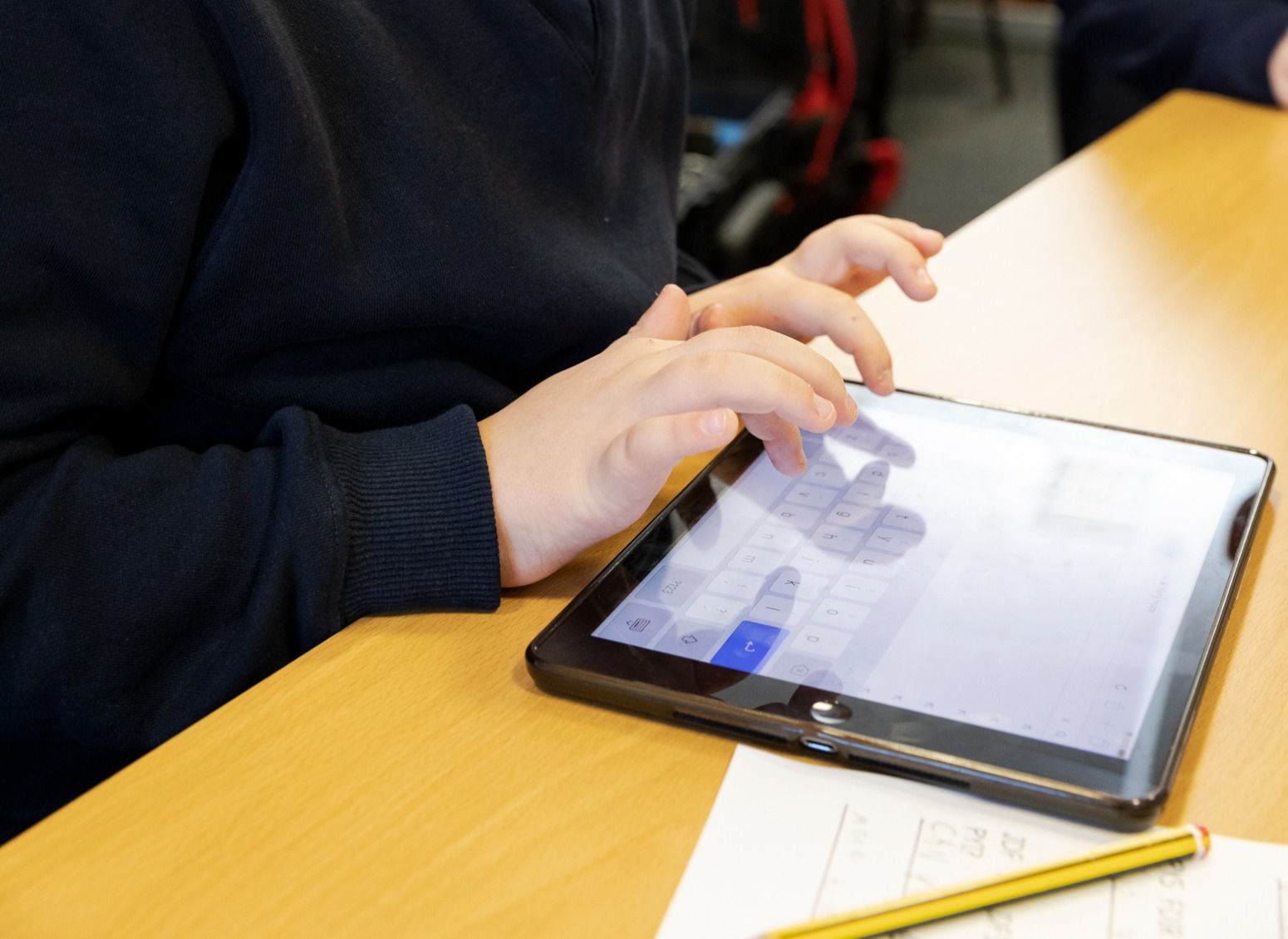
Tablets such as iPads are becoming increasingly popular and it is now common to see them being used as teaching tools in classrooms.
Many teachers agree that using tablets in schools makes lessons more fun and interactive, meaning students are more motivated to learn.
Here are five ways schools can use tablets for education:
1. Educational Apps
Last year, a DfE survey found that 72% of primary school teachers use apps in their classrooms, a significant increase from the figure of 57% reported before schools closed due to the pandemic.
There are a wide range of educational apps available for students to use on tablets, including apps which focus on reading, spelling and mathematical skills.
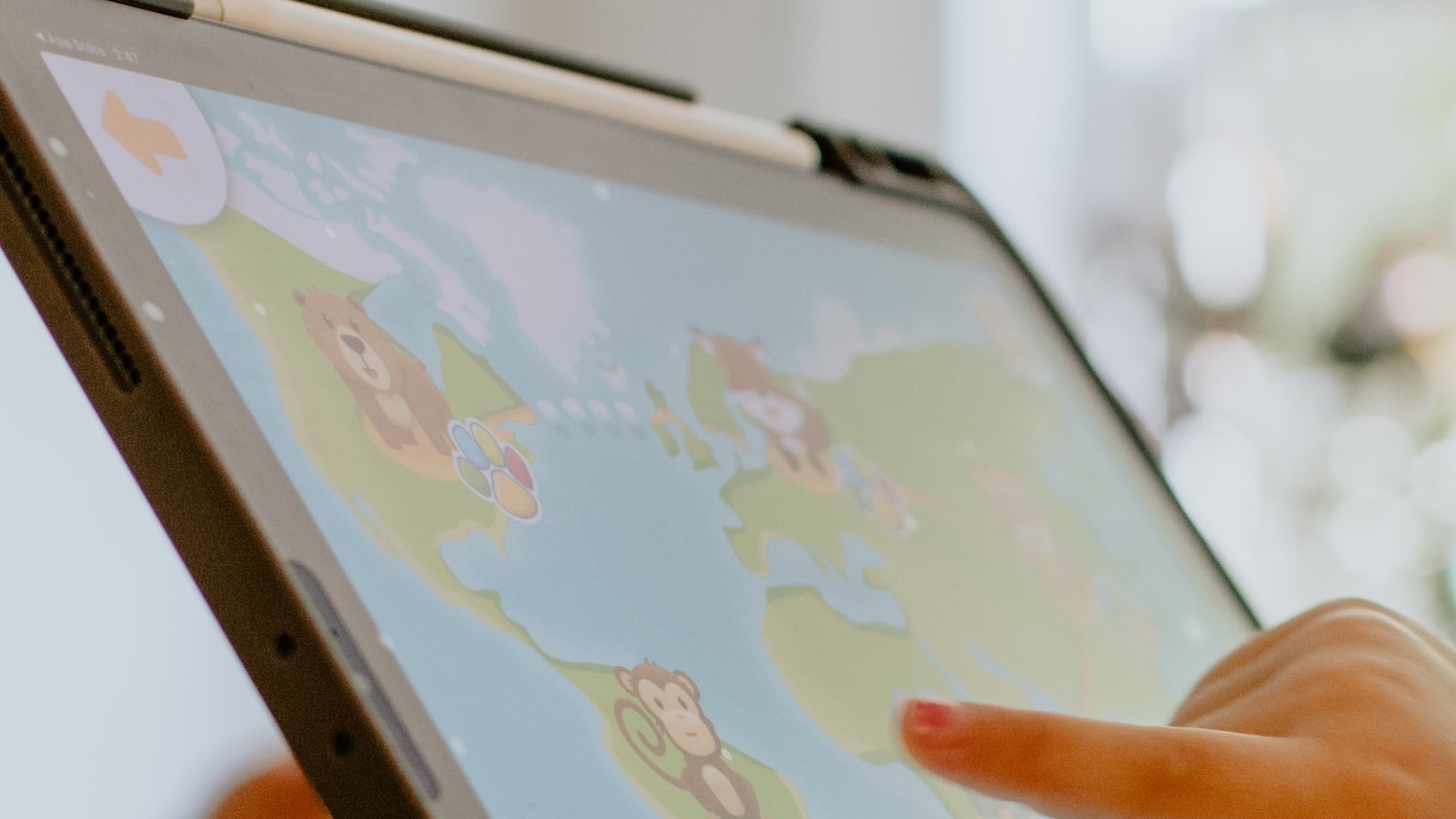
These apps are thought to be effective in improving student outcomes. For example, evidence supporting the use of high-quality maths apps has been published in a systematic review of 50 research studies. The review found that these apps could offer young children personalised learning opportunities to support their maths development.
The study also found that children’s learning outcomes were maximised when the app had opportunities to create personalised learning journeys, and when the app included both explanatory and motivational feedback.
2. Completing homework
Giving each student their own device means that they can take their tablet home to continue their learning in their own time. This increases equality between students as it ensures every student has access to a device when completing their homework.
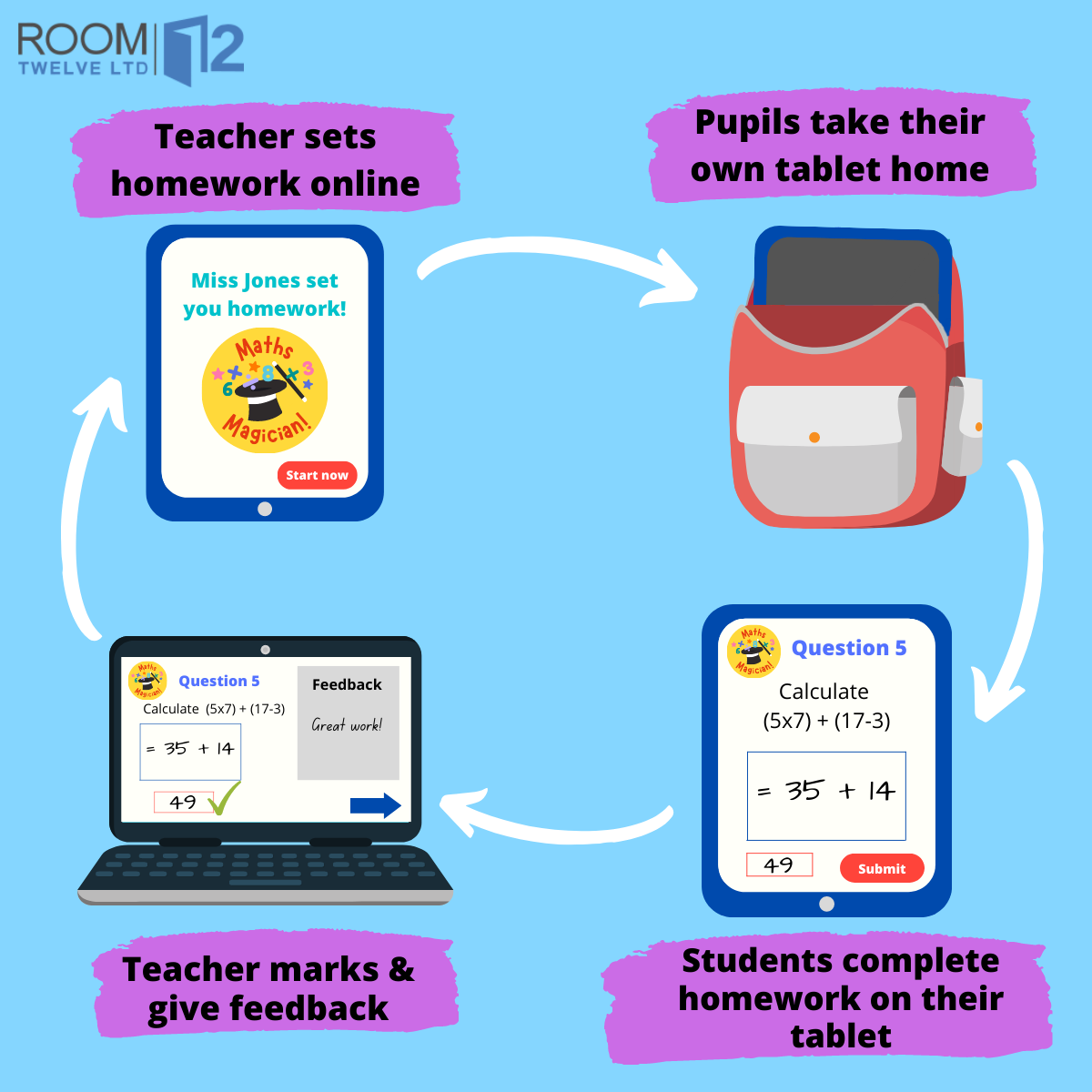
By using tablets in schools, teachers can set homework tasks without having to print numerous copies of worksheets to send students home with. This could save the school a lot of money on photocopying costs and can also reduce the school’s contribution to deforestation.
Tablets also make marking easier as students can easily send work to their teacher to be marked either via email or through a virtual learning environment.
3. Researching
Rather than having to wait for lessons in computer suites, tablets can be used in lessons to promote independent learning as students can research topics online.
Using tablets in schools enables students to draw upon a variety of online resources such as videos, diagrams and articles, which they can easily add to their notes. Students can then compile their research into a Word document or PowerPoint presentation on their tablet.
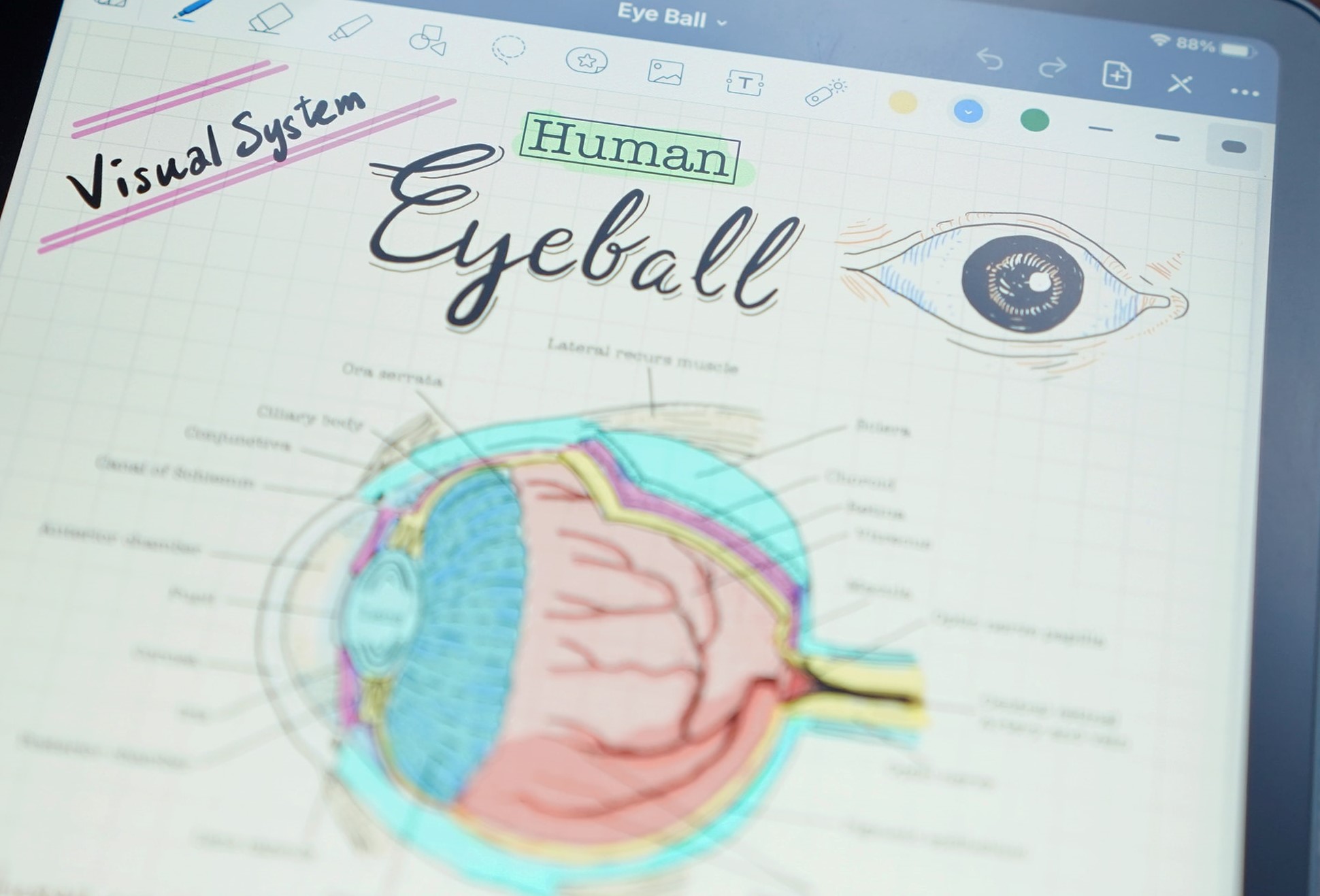
4. Reading textbooks
Instead of schools having to invest in several copies of paper textbooks, which all have to be stored somewhere, licences for e-books can instead be bought by the school, so students can read them on their tablet. This could save the school money as e-books tend to be much cheaper than traditional textbooks.
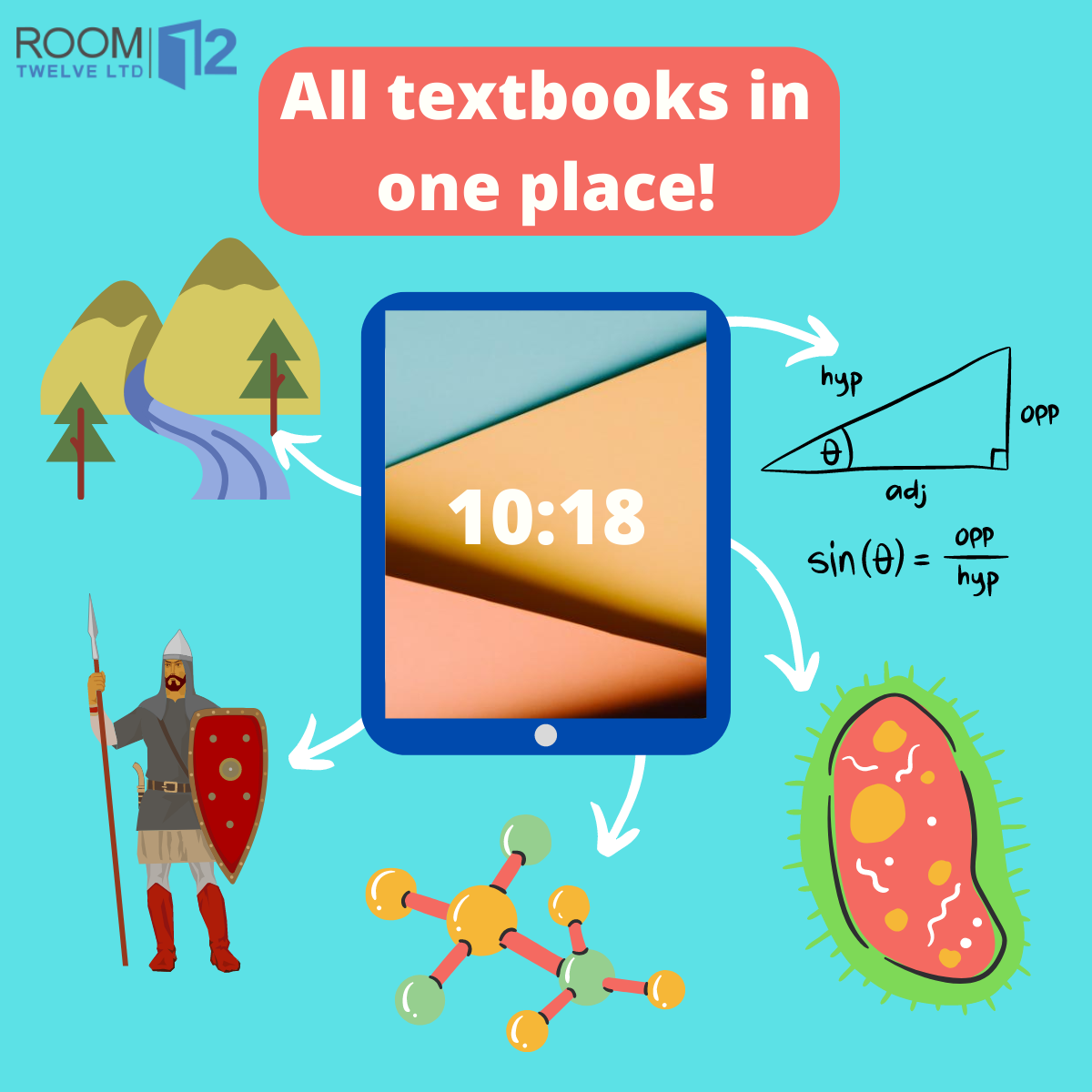
Having e-books available on tablets also allows students to access textbooks at home too, without having to bring physical copies home from school.
5. Improving writing skills
Students can also use tablets in school as a tool to improve their literacy skills as students can quickly search for words that they are struggling to spell.
Additionally, teachers can encourage students to improve their writing by looking for synonyms using their tablet.
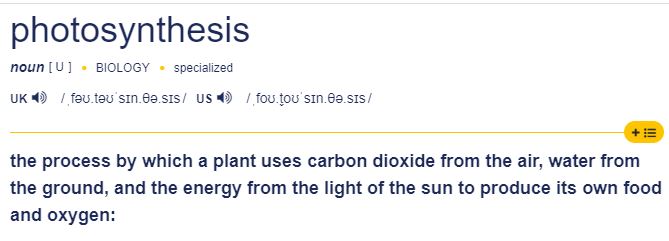
Room 12 are here to help fund tablets for schools.
Our compliant funding solutions are flexible, and allow schools to spread the cost over a number of years through fixed, affordable payments, which can be paid monthly, quarterly or annually.
We also offer one-to-one device schemes, which allows parents to contribute towards their child’s device. Classroom devices are leased by the school and agreed monthly or quarterly rental payments are recovered through payments from parents.

For more information, email us at info@room12.com or call us on 020 3301 1240 to speak to a member of our friendly team.

Recent Comments